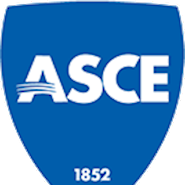ASCE has honored Feniosky Peña-Mora, Sc.D., P.E., NAS, CCM, F.CIOB, NAC, Dist.M.ASCE, with the 2024 Henry L. Michel Award for Industry Advancement of Research for his ability to substantiate forward-looking hypotheses with hard data and pragmatic experiential results.
As dean of engineering and applied sciences at Columbia University, Peña-Mora was responsible for setting the school’s strategic direction and managing a $400 million endowment, a $200 million budget, and 4,500 students and faculty members. In 2018, he returned to Columbia as a professor of civil engineering and engineering mechanics, professor of earth and environmental engineering, and professor of computer science. He currently directs the Center for Buildings, Infrastructure and Public Space at Columbia. He is known as an innovator, both domestically and internationally, and has the skills to lead a university department, college, and campus as well as a governmental agency to be both competitive and innovative while still accomplishing their legacy missions.
Between 2014 and 2017, Peña-Mora served as the New York City Commissioner of the Department of Design and Construction, the largest municipal capital construction agency in the nation. He oversaw more than 1,200 projects valued at more than $15 billion undertaken by over 1,400 employees and 1,300 consultants. Under his leadership, significant projects included the new $750 million NY Police Academy, the new $640 million NYC 911 Site, and Times Square reconstruction. During this period, the agency also achieved a number of record accomplishments, including delivering 400 construction projects at a value of $4.5 billion; starting more than 450 construction projects valued at more than $4.5 billion; receiving over 80 design and professional awards; and committing more than $5.4 billion in new contracts by improving the capital project procurement process.
Peña-Mora’s research and professional contributions in bringing advanced computing into civil engineering are many. In particular, his research on conflict resolution and collaborative engineering using advanced computing methods is well-known. He was honored by the federal government with the 2000 Presidential Early Career Award for Scientists and Engineers. The methodology developed through his research on change management and conflict resolution has been adopted in many large-scale projects, such as the construction of the landmark Harbor Tunnel, in Boston. Additionally, his research and development of agent-based software, and virtual and augmented reality tools to support the decision-making process, has been widely recognized by the civil and construction engineering profession.
The Henry L. Michel Award for Industry Advancement of Research was established in 1996 and is named in honor of Henry L. Michel, Past Chair of the Civil Engineering Research Foundation (CERF) Board of Directors. The award recognizes leaders of the design and construction industry whose dedication and aggressive vision for the industry have provided the cornerstones for improving the quality of people’s lives around the world through research in the design and construction industry. It was instituted as a Society Award on December 17, 2008.



